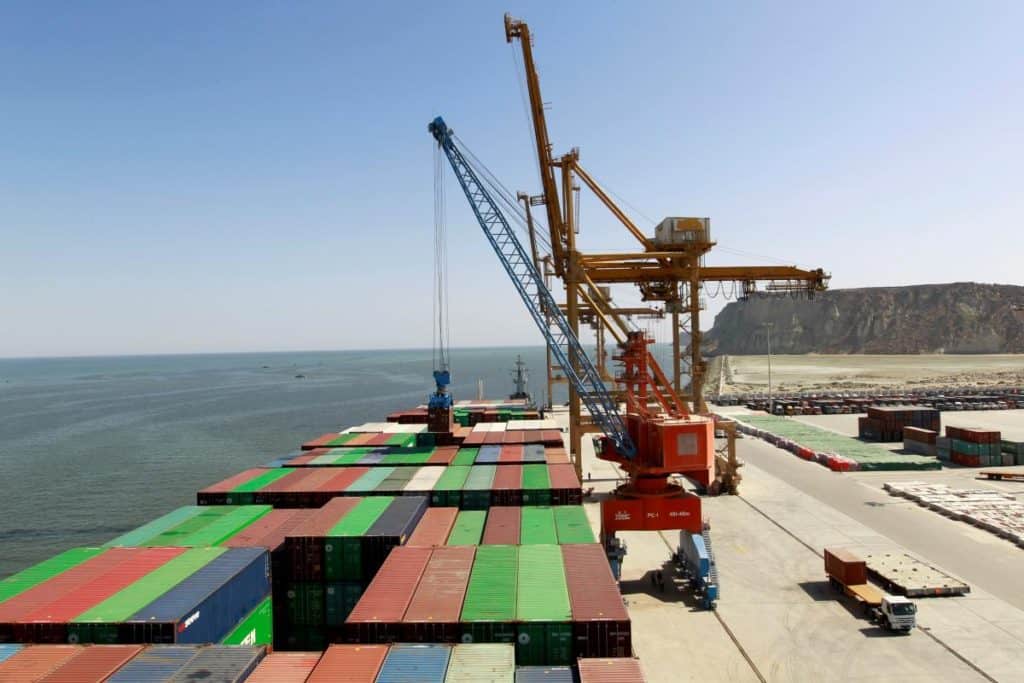By Prof. Engr. Zamir Ahmed Awan
Due to the Pandemic, the global economy is suffering and few nations have already entered into recession. Even the most developed nations like the US and EU countries are facing economic crises. However, few countries have less impact, among them are China as well as Pakistan.

Pakistan adopted an innovative approach of smart lockdown and averted adverse impact on its economy. Economic indicators in Pakistan are positive. The situation is not aideal, yet, encouraging. The policy makers in Pakistan has assesssessed situayion well and adopted innovatiove approach to overcome Pandemic, while keeping economy less disturbed.
The Federal Cabinet of Pakistan approved the Strategic Trade Policy Framework (STPF) 2020/25. The STPF 2020/25 aims at enhancing the ability of Pakistani enterprises’ capacity to produce, distribute and sell products and services as or more efficiently than their competitors.
Pakistani products enjoy a good reputation and yet are competitive in the international market. Pakistan is a founding member of WTO and believes in trade liberalization. It promotes globalization and multilateralism. We believe protectionism is not a healthy trend in international trade and may limit market access. It might create hurdles in free and fair trade.
The following priority sectors have been identified under the framework after studying the international demand trends, on one hand, and the capacity and capabilities of different export sectors of Pakistan, on the other. Pakistan is exploring new markets and capable of competing Internationally. The strength of Pakistan is its huge workforce, around 70% of its population is youth under the age of 40. The abundance of raw material and rich mines and minerals makes a strong industrial base for Pakistan. Agriculture is our strength too, the fertile land, penty of water, and strong work force transformed Pakistan agriculture a major source of earning for Pakistan.
Under the policy, the traditional sectors included textiles and apparel; leather; surgical instruments; sports goods; carpets; rice; cutlery; pharmaceuticals; marble and minerals; processed food and beverages; footwear; gems and Jewellery; chemicals; meat and poultry; fruits and vegetables; seafood; and services sector with special focus on IT, transport, logistics and tourism.
The developmental sectors are engineering goods, including auto parts. The main focus of the Strategic Trade Policy Framework will be geographical and product diversification, manufacturing cost reduction through tariff rationalisation, pursuit of regional connectivity and Look Africa Policy, enhancement of market access through FTA/PTA, facilitation of logistics and tracking under TIR and enhancement of regional connectivity for access to Central Asian Republics (CARs), Turkey and Iran, and further towards Europe and Russia. Pakistan is looking forward to more Free Trade Agreements (FTAs) with other countries, especially with EU member states.
The framework is dynamic in nature and will be subject to course correction based on constant monitoring and evaluation. There would be an institutionalised mechanism for robust monitoring and implementation of the STPF to minimise the policy implementation gaps, which have traditionally remained a weak link due to multi-organisational roles in the export ecosystem.
A comprehensive approach is being adopted to enhance trade with other nations , aiming to boost exports. Currently, Pakistani exports stand at half of its imports. The trade deficit has exerted a huge pressure on demand of foreign exchange for Pakistan. It also caused inflation and price hike, due to devaluation of Pakistani currency.
To oversee the implementation of STPF 2020/25, a cross functional National Export Development Board (NEDB) had already been constituted under the chairmanship of the prime minister, comprising senior public sector officials of the relevant organisations and private sector representatives. Regular meetings of the NEDB are being held to ensure the implementation of various policy measures.
It is expected that with the introduction of new framework will enhance exports and contribute toward Pakistani economy positively. It will create many avenues of cooperation and collaboration between Pakistan and the rest of the world.
Author: Prof. Engr. Zamir Ahmed Awan – Sinologist (ex-Diplomat), Editor, Analyst, Non-Resident Fellow of CCG (Center for China and Globalization), National University of Sciences and Technology (NUST), Islamabad, Pakistan.
(The views and opinions expressed in this article are only of the authors and do not necessarily reflect the views, opinion or position of World Geostrategic Insights).







